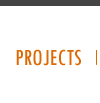General FaQ’s asked by parents
1. Which curriculum of CBSE, ICSE, IGCSE and IB is better?
A CBSE stands for Central Board of Secondary Education. It is one of the most popular and school boards in India. It is majorly preferred by people in transferrable jobs as almost all the cities across the country have reputed schools following the CBSE curriculum. Central Schools, better known as Kendriya Vidayalas are affiliated to CBSE education board. The board conducts two examinations- All India Secondary School Examination, AISSE (Class X) and the All India Senior School Certificate Examination, AISSCE (Class XII). CBSE is recognized by Indian Government, all Indian Colleges and Universities. The curriculum is aligned in such a way that it helps the students to prepare for engineering and medical entrance exams.It has 5 main subjects unlike C.B.S.E and children who can’t take too much stress can easily do C.B.S.E
ICSE stands for Indian Certificate of Secondary Education. It was previously known as Senior Cambridge. The examination conducted for Class 10th is known as ICSE and for 12th it is referred as INDIAN School Certificate (ISC). ICSE curriculum lays higher emphasis on language with two papers on English unlike CBSE. Its an indepth study unlike C.B.S.E .Not every body’s cup of tea.A very challenging and stressful Indian curriculum.
IB syllabus is accepted world-wide which gives a definite edge to the students who aspire to go abroad for higher studies.
I.G.C.S E is international general Cerificate school exam .its affiliated to Cambridge and class 9th and 10th are called o levels and classes 11th and 12th are called A levels.In primary its called C.P.P .middle its called M.PP and then GCSE exams.The children who are wanting to take a chemistry with a art is possible.Its not compulsory to do science with a math.Math can be taken at core or an advanced level.O level is comparitively easy than the A level.The children who don’t want to go for competitive exams and are wanting to pursue subject of their choice can do and can choose 5-8 subkjects depending on their capability to perform.
Now note:
CBSE primarily focuses on a pre-defined curriculum where there is little room for kids to experiment. Some of the critics even say that it is heavily examination-based and promotes rote learning. ICSE, on the other hand offers a wide syllabus which is application-based and requires the students to think beyond the prescribed syllabi to excel. IB follows an altogether different approach where there are no prescribed textbooks and kids are free to explore the myriad world of books. The focus of the IB pedagogy is on 'how to learn' rather than 'what to learn'. CBSE students have a better footing in Indian sub-continent as the syllabus is well aligned with most of the professional entrance examinations. As per the statistics, CBSE students fare better in such exams while ICSE students have to often struggle and go an extra mile to prepare for the exams. IB students, however compete well in exams where there is little amount of rote learning and requires higher degree to analytical skills like CAT,SAT,GRE etc.
Like other modern programmes, IGCSE offers a wider range of subjects and encourages high academic standards through a practical approach to teaching and learning. Assessment is not limited to conventional written papers and they consist of a variety of tests e.g. oral and listening tests.
The assessment is aimed at a wide ability range of students, with an eight-point grading scale,from A+ to G, with A+ being the highest.
IGCSE is a balanced curriculum and a flexible course of study.
Most subjects offer a choice between core curriculum and extended curriculum.
This gives students of all ability levels the freedom to choose subjects that are right for them and, thereby, the opportunity to score good grades.
The core curriculum is an overview of the subject and is suitable for students who are expected to achieve grades C to G.
The extended curriculum is, sort of, a specialisation in that subject. It is more challenging and designed for students who are expected to achieve grades A+ to C.
While the syllabi and curricula of both IB MYP and IGCSE have an international outlook,IGCSE appears to be slightly better, in that it is tailored for a more multi-cultural and more multi-lingual audience.
2. What is IB?
A. The International Baccalaureate (IB), formerly the International Baccalaureate Organization (IBO), is an international education foundation headquartered in Geneva, Switzerland and founded in 1968. IB offers three educational programmes for children aged 3–19.
I.B diploma is only after class 8.
PYP or the primary year programme is for grade 1-5 and Middle year programme is for grade 6-8.
3. Why IB schools charge a higher fee ?
A. ANNUAL ONGOING COSTS
Ongoing teacher training - variable, $20-60,000 per year avg.
Salaries and benefits for additional instructors: IB requires that foreign language be taught a specific number of hours per week in the PrimarySchool. This requirement often necessitates additional staff.
Establishment of IB Coordinator Positions - (recommended at least 25% release time)
CAS Supervisor - (stipend approx. $2,500 - 3,500)
EE Supervisor - (stipend approx. $2,500 - 3,500)
Resources for library(20,000 $)Postage to mail materials to IB offices around the world. (avg. of $5-7,000 per yr.)
Salaries for substitutes for IB classes when teachers are out for training - (variable)
IB DP Student registration fees - $129 $135 $145 per student, certificate or full payable in the year first IB exam is taken.
Annual IB DP authorization dues - $9,600 $10,000 $10,200 (2011-08/2012)(01/12)
So, the schools have to recover the cost incurred and apart from this students need to register for exams and pay for the books. All these costs a lot.
4. If our ward was studying at CBSE affiliated school in Delhi, can we opt for IB school at Bangalore? Will the schools offer admission to our ward?
A.A student can join the IB Diploma Program after completing the grade 10 level qualifications from CBSE, ICSE or any other State Board .The Diploma program is equivalent to 10+2 level qualification through CBSE
5. What is the admission time at Bangalore schools?
A. Each school’s timing is different. A few schools start it in October whereas the others do it between November to Jan.
6. Do the schools at Bangalore give any preference to migrated parents from different parts of the country or abroad?
Certain schools have quota. The schools do have seats for outstation parents. The parents can come in late and they are entertained. A few N.R.I parents have to pay hefty donations.
7. Do the schools offer late admission to migrated parents from different parts of the country or abroad?
A.Yes.They do. But,they end up paying a but more than the others.
8. Does a ward face problem switching over from one Board to another, for instance-switching over from ICSE Board to CBSE Board.
A. C.B.S.E is easier compared to ICSE. Has less papers compared to ICSE.
Syllabus is frequently updated with more relevant materials.
CBSE is more liberal and students can get better marks as compared to ICSE.
If child to score more percentage in boards, go for CBSE.
9. What is the correct age of enrolling a child at IB Board affiliated school?
A The IB is a flexible programme that enables students to more or less join at any age and at any point in the academic year. There is an inherent understanding that pupils joining with different educational experiences will require a degree of differentiation in the curriculum. It is more or less expected that teachers in IB programmes will do some modification of the curriculum to accommodate these children.
PYP: The Primary Years Program (Kindergarten to Class 5).
MYP: The Middle Years Program (Class 6 to Class 10).
DP: The Diploma Program (Class 11 to Class 12). Age 16-18
10. Do the schools at Bangalore put strong emphasis on sports and co-scholastic activities?
A. Most of the Bangalore schools focus on both academics and sports. Every school is competing with each other in offering facilities for extracurricular activities.The schools are aware that todays parents want a balanced curriculum.
11. Is there any extra focus on Computer Education at schools as Bangalore is considered to be Silicon Valley of India?
A. There is a lot of focus on Science and maths.Computer education too but not because it is an I.T city.It’s because of the huge demand from parents and children.
12. Is the knowledge of Kannada mandatory to study at a Bangalore school? Is learning Kannada compulsory or optional at the schools?
A.Kannada is a compulsory third language from 5th std and every child needs to study Kannada for three years.(5-8 classes)
13. What are the usual Eligibility Criteria and Admission Procedure for admission at Bangalore schools?
The eligibility criteria is 4 years at L.K.G level. Admission procedure varies from school to school.
14. What does an I.B. school entail?
A. The candidates are graded on a scale of 1 (lowest) to 7 (highest) points in each of their subjects: HL and SL. For HL subjects Grades 4 to 7 are deemed 'Pass', whereas for SL subjects Grades 3 to 7 are deemed 'Pass'. 3 more points may be awarded for the Extended Essay (EE) and work on the Theory of Knowledge (TOK) course. Thus, the maximum score possible is 45. Subject to satisfactory marks in all parts of the Diploma, it may be awarded for a minimum of 24 points.
15. Is I.B. recognized in India?
Yes. The Association of Indian Universities (AIU) recognizes the IB Diploma as equivalent to the Plus Two (10+2) Class of the Senior Secondary School, which is the eligibility criterion for admission to the undergraduate courses in India. The IB issues Indian equivalent percentages for the IBDP grades to those students who intend to apply to Indian universities.
16.Who should choose C.B.S.E or I.C.S.E and why?
If the child is not so good at language and literature then, it is better to go for CBSE.
If you want your child to take up management roles then, ICSE is far better then CBSE.
ICSE givesagoodcommandoverlanguage.
If you want your child to score more percentage in boards, go for CBSE.
If you want an overall better academic growth, go for ICSE because 2% or 5% more is boards does not matter a lot in the overall career. Even if the child becomes an engineer from the best institute, he might not rise in his career if he does not have an excellent command over his language. |












